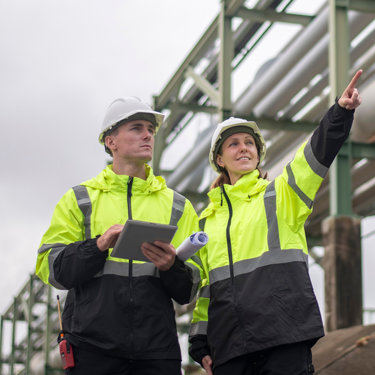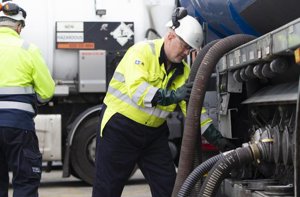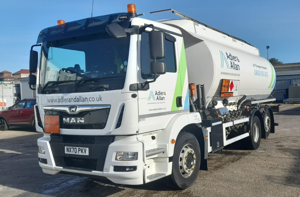
Fuel analysis and polishing
Ready to discuss your project?
Please leave your details and a member of our team will reach out to discuss your requirements in more detail and arrange next steps.
We help organisations that store and use fuels ensure business continuity by analysing and polishing their fuel, identifying, and rectifying problems quickly, so that they can minimise downtime and commercial disruption while reducing environmental risk.
All fuel systems are vulnerable to contamination by water, sludge, and microbes, especially when biofuels are involved and your reputation as a supplier depends on providing clean fuel and keeping fuel quality high, reducing costly downtime.
- Do you have your fuel tested to determine if it's contaminated?
- Do you have damaged equipment?
- Do you need to identify sources of infection?
- Do you need a cost-effective solution in fuel sampling, testing and analysis?
Features and outputs
- Our In-house, UKAS accredited fuel testing lab can offer less than 24-hour turnaround on certain analysis.
- Results delivered to British Standards.
- Minimise downtime and commercial disruption.
- Reduce environmental risk caused by tank corrosion.
Fuel analysis
Our experts will visit your site and take samples of fuel from your tanks to be tested and analysed in our state-of-the-art UKAS accredited laboratory.
Operating to British Standards with less than a 24-hour turnaround for certain results, our chemists can test a range of different fuels including petrol, diesel, gas oil and kerosene. We test for all types of contamination including microbial activity, water content, appearance, and particulates before determining the level of contamination.
We're able to deliver standard tests with fixed priced packages, or bespoke solutions based on your specific analysis requirements.
If contamination is identified in your tank, our experts can help identify sources of infection and suggest the best remediation.
What is microbial contamination?
Microbial contamination of diesel fuel occurs when water finds its way into a fuel tank because of condensation, rainwater penetration or adsorption from the air. Water encourages the growth of biomaterials that can clog filters and create tank sludge, known widely as ‘the diesel bug’. This kind of contamination not only accelerates tank corrosion, but it can also block lines and filters and significantly reduce fuel performance.
Fuel polishing
Once fuel has been tested and an issue has been found, bacterial additives and fuel polishing is employed to remove infected material and eliminate the source of the problem.
Fuel polishing is a technical cleaning process used to remove or filter water, any free water sediment and microbial contamination from stored fuels.
Our team will then advise you on how to prevent infection happening in the future which may mean a change to your maintenance schedule.
Mobile fuel polishing
Our experts can sample, test, visually analyse onsite, and take for full lab analysis. Our mobile tank cleaning and fuel polishing system combines filtration and polishing with the addition of a specially formulated fuel catalyst. The tank is cleaned; sludge, water and microbes are removed, and the stored fuel is re-conditioned at the same time, all on your site.
For smaller tanks we can bring our custom-built mobile fuel polishing and tank cleaning unit to your site. With no need for de-gassing or fuel removal, fuel is pumped through the cleaning unit and back into the tank in one continuous, safe, and efficient process.
Our mobile fuel polishing systems can polish at a rate of approx. 3500 litres per hour / 35,000 litres per day.
You might also be interested in...
Environmental compliance today, creating a sustainable tomorrow
Helping you reduce risk to the environment and your operation by managing assets compliantly while achieving commercial, ESG, and net-zero goals.
Contact our experts


